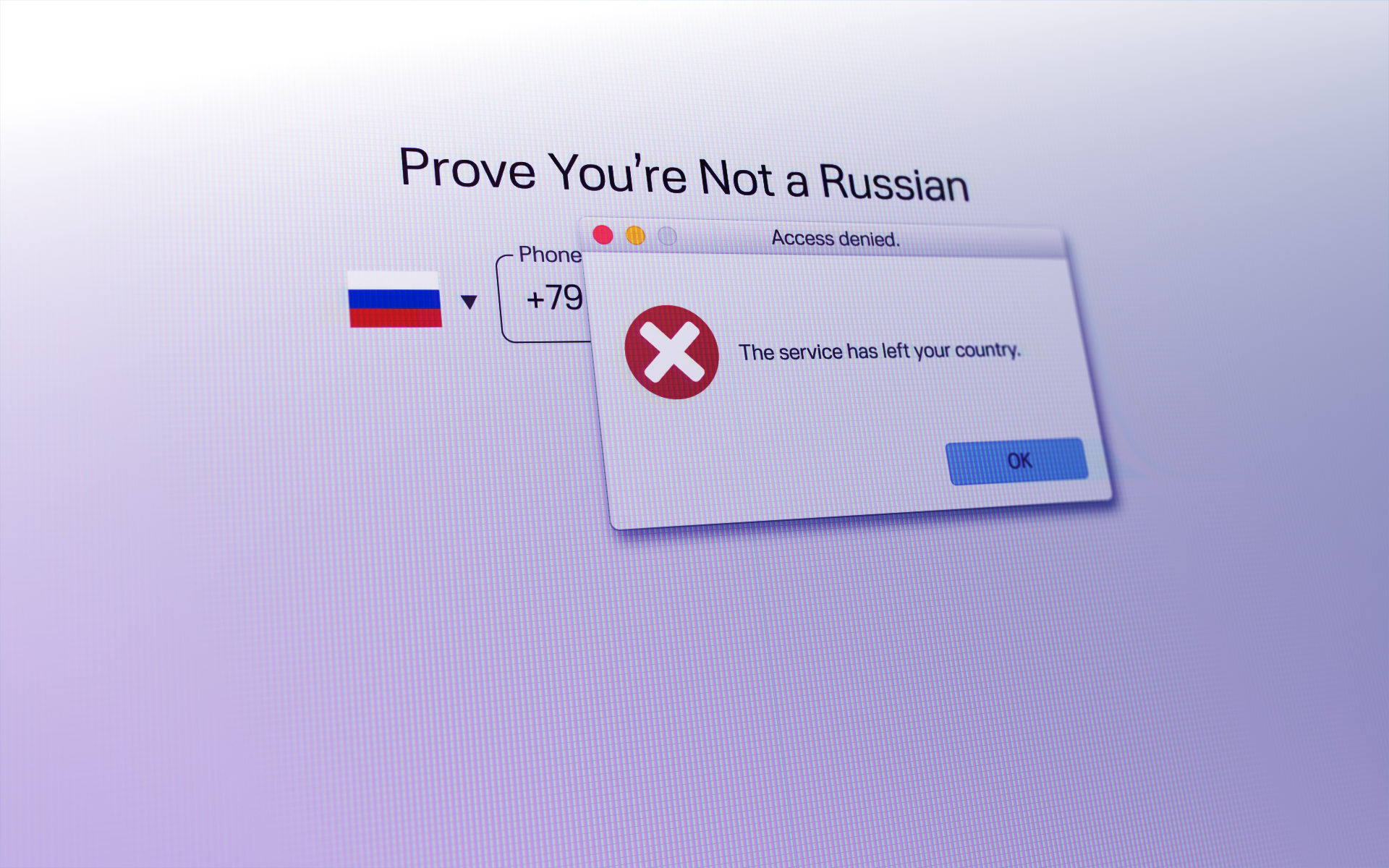- Category
- World
Russian Users Face Digital Blackout as Sanctions Cut Off Key Services

American and European sanctions against Russia are now targeting digital services in the third year of Russia’s full-scale invasion of Ukraine. Why is this significant?
Starting September 12, the U.S. enforces new sanctions targeting the IT sector. These sanctions ban American companies from offering a range of services to legal entities in Russia, including consulting, design, support, and cloud services related to enterprise management, design, and production.
Several American companies that had either remained in Russia or operated under restrictions are now pulling out and halting services. Prominent American businesses are leading the exit.
Google has blocked new account registrations with Russian numbers and disabled Russian bloggers' ability to earn through AdSense.
Atlassian, the Australian company behind products like Jira, Trello, and Confluence, has announced a complete withdrawal from the Russian market.
Notion, the service used for work organization and project management, has become unavailable in Russia.
Miro, an online whiteboard platform, will no longer service Russian and Belarusian accounts.
Microsoft has begun disconnecting Russian users from its cloud services.
Slack is exiting the Russian market and ceasing corporate messaging services.
CAD systems like Autodesk have left Russia, while SAP and Oracle have exited Russia’s ERP market.

The exodus of American and European services from Russia began gradually after the full-scale invasion. Many companies closed their offices and evacuated staff, but not all left immediately. This process is ongoing, and recent U.S. sanctions are likely to speed up the trend.
Why does this matter?
Russia is a country that launched the largest full-scale war in Europe since World War II and threatens the world with nuclear weapons, becoming a proliferator of such weapons. Despite international agreements, Russia has deployed nuclear warheads in Belarus. Unconfirmed reports suggest that nuclear technologies may also have been supplied to Iran and North Korea. As a terrorist state that devastates Ukrainian cities, kills thousands of Ukrainian civilians, and militarizes the world instead of contributing to global growth, Russia faces sanctions.
No one questions why sanctions are imposed on Iran or North Korea; the same logic applies to Russia: cutting off access to advanced technologies to hinder its effectiveness.
It's crucial to recognize that Russia's defense industry employs over 3 million people directly. Several million more people and thousands of companies work as subcontractors, supplying components, raw materials, and finished products. For example, rockets require materials such as metal, chips, and launch systems.
Modern software is also important. Weapons often involve complex technological developments, and creating these requires tools and services, many of which are American-made.
Blocking access to these resources for anyone involved in creating the weapons used by Russia against Ukraine is essential.
This is only one aspect of the issue.
Russia’s military complex is funded by revenues from the oil and gas sector, which generates approximately $13-15 billion annually—about a third of the country’s budget. To operate efficiently, these businesses rely on advanced systems like SAP and Oracle. Disconnecting them from American services will force them to find or develop their own alternatives, potentially slowing operations and reducing quality. This could impact their revenues, aligning with the primary goal for Ukraine and its partners: cutting off Russia’s ability to finance the war.
If you are a terrorist state—you must pay for it. Digital sanctions are part of the cost.
-29a1a43aba23f9bb779a1ac8b98d2121.jpeg)

-206008aed5f329e86c52788e3e423f23.jpg)

-605be766de04ba3d21b67fb76a76786a.jpg)
-27ef304a0bfb28cb4215e5deede4a665.png)
-46f6afa2f66d31ff3df8ea1a8f5524ec.jpg)
